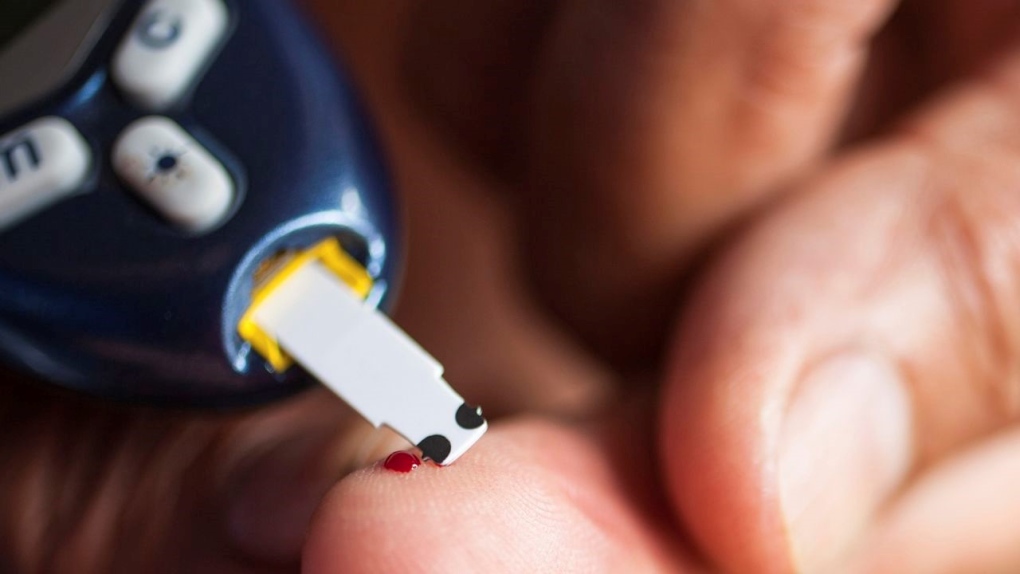People who develop prediabetes when they’re younger are likely to have a higher risk for dementia in later life, a new U.S. study has found.
Prediabetes exists when blood sugar levels are higher than optimal but not yet high enough for the patient to be medically diagnosed with diabetes. Unfortunately, millions of Americans younger than age 60 have prediabetes — and many aren’t even aware.
“Prediabetes is associated with dementia risk, but this risk is explained by the development of diabetes,” said authors Elizabeth Selvin, a professor of epidemiology, and Jiaqi Hu, a doctoral student, in a news statement. They are both at the Johns Hopkins Bloomberg School of Public Health in Baltimore.
The study, published Wednesday in Diabetologia, analyzed data from the Atherosclerosis Risk in Communities study. It enrolled people between the ages of 45 and 64 in four U.S. counties: Forsyth County, North Carolina; Jackson, Mississippi; suburbs of Minneapolis; and Washington County, Maryland.
People in the study who developed Type 2 diabetes before the age of 60 had three times the risk of dementia later in life compared with those who did not have Type 2 diabetes before age 60, the study found. If prediabetes progressed to Type 2 diabetes between the ages of 60 to 69, the risk dropped, but only by a few points.
“We all have transient spikes in our blood glucose. It goes up, then down,” said Dr. Andrew Freeman, director of cardiovascular prevention and wellness at National Jewish Health in Denver. He was not involved with the study.
“But if you look at ‘glucose years’ to determine how high is your glucose and for how long, then you begin to see cumulative damage,” Freeman said. “And the earlier you’re exposed, the greater the level of cumulative damage.”
To that point, the study found that if Type 2 diabetes was not diagnosed until the person was in their 70s the risk of dementia dropped to 23%. And if a person developed Type 2 diabetes in their 80s or 90s, the risk was not greater than those without diabetes.
“There was a strong association of prediabetes with dementia but this association was only present among people who developed diabetes,” Selvin told CNN in an email. “This finding suggests that preventing progression from prediabetes to diabetes could help prevent dementia in older age.”
Alzheimer’s disease researcher Dr. Richard Isaacson, a preventive neurologist at the Institute for Neurodegenerative Diseases of Florida, said the results were not shocking.
“I’ve been screaming this from the rooftops for over a decade,” said Isaacson, who was not involved in the study, via email. “If this study gets people to actually take action when a ‘borderline diabetes’ or prediabetes diagnosis is given, that will certainly improve brain health outcomes.”
WHAT IS PREDIABETES
More than 1 in 3 American adults have prediabetes, and 80% of them don’t even know it, according to the U.S. Centers for Disease Control and Prevention. Nearly a third of those are between the ages of 18 and 44 — quite young to be developing a disorder that places them at extreme risk for type 2 diabetes, significant cardiovascular issues and vascular dementia as they age.
Even worse, nearly 1 in 5 adolescents ages 12 to 18 and 1 in 4 young adults ages 19 to 34 are living with prediabetes, the CDC said.
The CDC estimates that about 5.8 million people in the United States have Alzheimer’s disease and related dementias. And according to research cited in a 2019 report by the Alzheimer’s Association, the lifetime risk for the most common form of dementia is about 1 in 10 (10%) for men at age 45 and 1 in 5 (20%) for women.
A 2013 meta-analysis found Type 2 diabetes is associated with a 60% increase in risk for all-cause dementia. In addition, people with dementia who have Type 2 diabetes have an increased risk of early death.
While the exact connection between diabetes and dementia is not known, there are several possible pathways, according to research.
“Diabetes raises the risk of heart disease and stroke, which hurt the heart and blood vessels. Damaged blood vessels in the brain may contribute to cognitive decline,” according to the Alzheimer’s Association.
In addition, high blood sugar causes inflammation, which could damage brain cells, the association said. Even people in the early stages of Type 2 diabetes show signs of dysfunction in the brain.
Research has shown that Type 2 diabetes dramatically increases levels of beta-amyloid protein in the brain, a hallmark sign of Alzheimer’s disease, the association said.
This study is not the first one to find a relationship between earlier onset of diabetes and dementia. A 2021 study performed in the United Kingdom found that developing diabetes more than 10 years previously raised the risk of dementia by more than 18%.
RISK FACTORS FOR PREDIABETES
Prediabetes is known as a silent predator, developing and progressing without any obvious symptoms. There are risk factors, however.
You are at higher risk for prediabetes if you are overweight, over the age of 44, exercise less than three times a week, have a parent or sibling with Type 2 diabetes, have had diabetes during pregnancy or have given birth to a child over 9 pounds (4 kilograms), according to the CDC.
Some groups are also at higher risk, including people who are Black, Hispanic or Latino, American Indian, Alaska Native, Pacific Islander or Asian American. You can screen your personal risk by taking a test provided by the National Diabetes Prevention Program.
The U.S. Preventive Services Task Force recommends all adults ages 35 to 70 who are considered medically overweight or obese be screened for prediabetes or diabetes. If blood sugar levels are of concern, reducing weight, exercising, eating a healthy diet and avoiding processed and ultraprocessed foods can reduce risk.











































